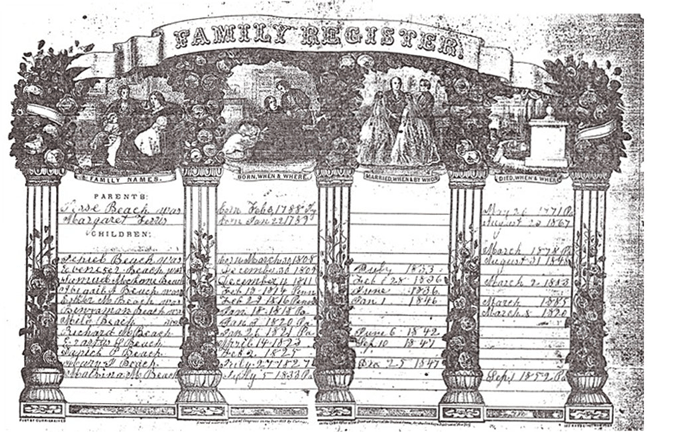Beach Family Stories and Histories
A Sketch of
the early life of Jesse Beach,
Written in 1867 by Mrs. Emily Beach DeWitt. Where a person
is known, it is not necessary to produce credentials as a
passport to credit or respectability:
but there are those who are better pleased to claim an
acquaintance with persons who have descended from some
distinguished ancestor.
To such, I will state a few facts. Richard
Mansfield obtained a grant from Queen Elizabeth for a township
of land in Timothy Beach
had two sons, who married sisters by the name of Bennett, and
were living then in Sometime after,
a stranger called to see them, and as he came in, a little boy
some two or three years old said "that man killed daddy."
They thought he spoke by inspiration, for the family did not
know that anything had happened. This stranger proved to
be the man that Timothy Beach had started to go with down the
river, and he told his wife and children that they ran the canoe
under a limb of a tree, when Mr Beach was knocked off and the
canoe sank. Imagine the feelings of a woman, if you can,
who had been brought up in one of the old towns of her native
State and removed to the wilderness country, left a widow
without a moments warning, the mother of eight children, and the
ninth, Jesse, an unborn child at the time of his father's death. The days of
chivalry were so far past that there were men even then, who
instead of protecting a woman would wrong them.
The neighbor never paid the borrowed gold, but the
avenger of evil overtook him for he was killed by a fall on the
ice. My Beach Family Heritage, By Gerald Fanning Darrow Jesse Beach and Margaret Ferris Bible
|
